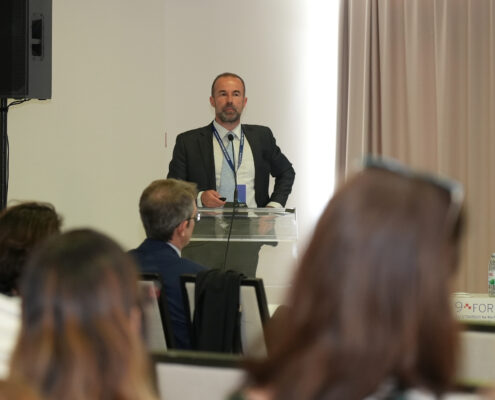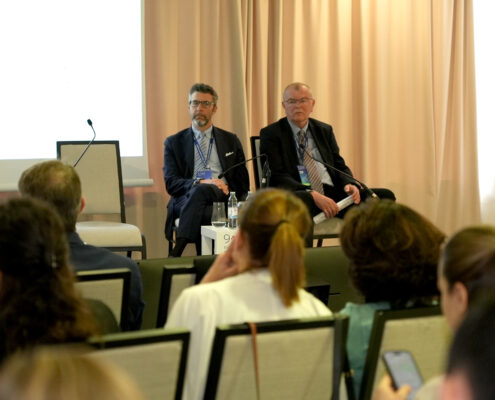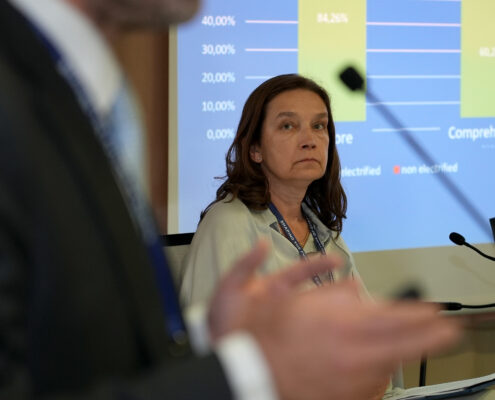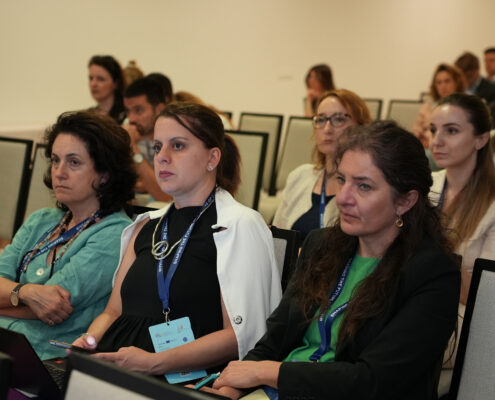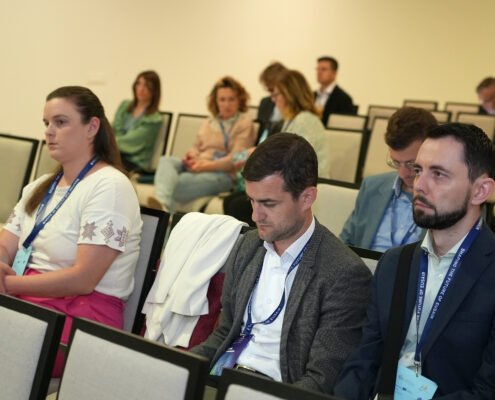9th Annual EUSAIR Forum
Šibenik, Croatia | 15 - 16 May 2024CONCLUSIONS OF THE PILLAR 2 SESSION - Transport:
PILLAR 2 Connecting the Region (Transport sub-group)
During the 9th EUSAIR Forum (Šibenik, Croatia), in the framework of Pillar 2 Transport sub-group, on the 16th May it was held the thematic event “Interoperable rail infrastructure and services to increase connectivity in the Adriatic Ionian Region”, focused on the discussion about challenges and opportunities in enhancing rail connectivity in the area. The session was moderated by Ms. Jasminka Kirkova EUSAIR Pillar 2 Sub-group Transport Coordinator from North Macedonia.
Mr. Coppola addressed the discussion recalling that the EUSAIR Master Plan on Transport identifies railway interoperability among the priority actions to be pursued in the 2023-2027 period, since it plays a crucial role in the Macroregion for the integration of transport networks, to reduce trade barriers and facilitate the movement of people, goods and services, promoting competitiveness and economic growth. Moreover, in the framework of the current revision of TEN-T core network, it was highlighted the importance of the introduction of the new Western-Balkan-Eastern Mediterranean Corridor as an opportunity of utmost importance for increasing funding opportunities for investments in transport infrastructures, boosting close cooperation between countries, and harmonizing rail transport regulation and standards.
Three panelists contributed to the discussion under different perspectives:
- Mr. Dejan Lasica (Serbia), Rail Policy Coordinator at the Transport Community Permanent Secretariat, focused on policy reforms and the development of the TEN-T Rail Network in the Western Balkans;
- Mr. Franc Žepič (Slovenia), Coordinator of Priority Action 1B of the EU Danube Strategy, highlighted the challenges of multimodal connectivity and rail interoperability starting from the examples in the Danube Macro-region;
- Mr. Paolo Dileno (Italy), Central Europe Initiative Executive Secretariat, focused on opportunities for cross-border passenger railway services along Corridor X, presenting the pilot action of the new railway passenger route Villa Opicina (Trieste) – Rijeka section activated within the “SUSTANCE” project (Interreg Central Europe Programme).
In conclusion, Mr. Coppola remarked that interoperability of railways networks implies - first and foremost – to bridge up the gap of railway capacity in the Adriatic-Ionian Region which requires not only investments in transport infrastructure, but also close cooperation between Countries in order to remove physical and non-physical (regulative and legislative) barriers that still hold back the full exploitation of infrastructure connections. The introduction the new Western-Balkan-Eastern Mediterranean European Corridor represents an opportunity for improving connectivity in the Region, but infrastructure alone is not sufficient: the harmonization of regulations and standards of rail transport is needed to guarantee safe and efficient services for passengers and goods, notably for border crossing points.
Moreover, since the investment to upgrade the existing infrastructure is huge, a priority plan is needed. In this respect, a study on potential demand could help to prioritize investment in the framework of the TEN-T extension in the AI Region, and could help to focus on the main barriers for integrated rail transport. He concluded recalling that only through close collaboration and common commitment of the Countries will it be possible to fully develop the economic potential of the Region.





